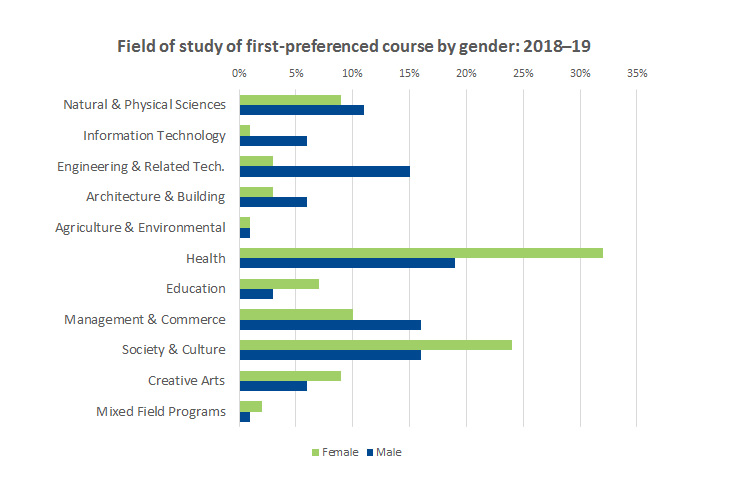11 Oct 2018
Statistics
Domestic undergraduate application statistics at early bird closing 2018
Applications for tertiary study in 2018–19 opened on Wednesday 1 August 2018 and early bird applications closed at midnight on 28 September 2018. (Students can still apply after this date but they will have to pay a higher processing charge.)
UAC received 59,143 domestic applications for undergraduate study in the first two months of the 2018–19 admissions year, 3,684 (5.9%) fewer than in the same period last year.
Some of the decrease in applicants may be explained by the increasing number of applicants who are applying directly to institutions through the portals serviced by UAC. That is, the count of 59,143 domestic applications does not include the approximately 8,000 applicants who have applied directly through these portals for 2019 admission. The institutions with UAC-serviced portals are: CQUniversity Australia, Charles Sturt University, Macquarie University, University of New England, University of Technology Sydney and Western Sydney University.
Applications by applicant type
Applicants are divided into four types: NSW Year 12s, ACT Year 12s, interstate and International Baccalaureate Year 12s, and non-Year 12s.
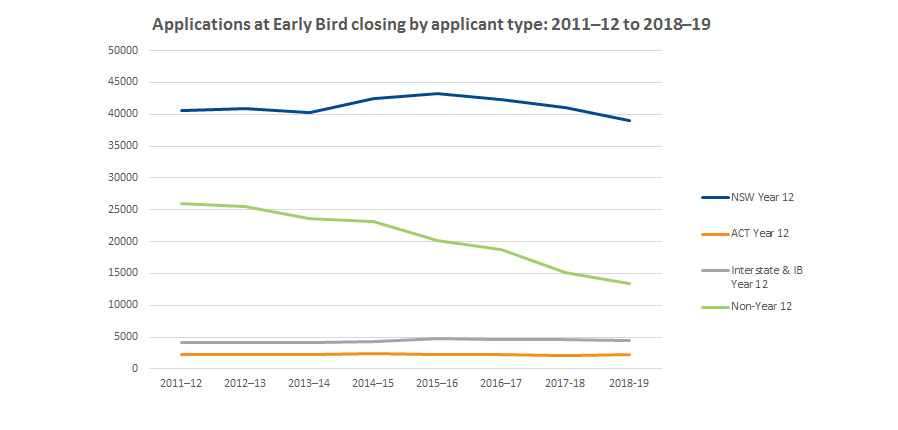
Gender analysis
The gender split of applicants was similar to the previous year: 57% of Year 12 applicants were female, while 61% of non-Year 12 applicants were female.
Age analysis
Almost all Year 12 applicants were 19 years old and under (99.7%). Around three-quarters of non-Year 12 applicants were 24 years old and under. The breakdown by age group for non-Year 12 applicants is shown in the following chart.
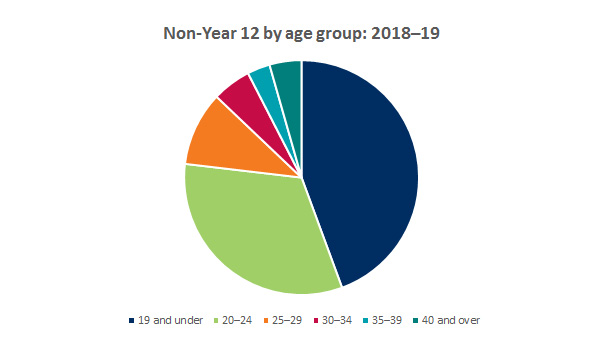
First preference analysis
Domestic undergraduate applicants can choose up to five course preferences. Their first preference is the course they would most like to study.
First preference by field of study and applicant type
The top five fields of study listed as first preferences by NSW and ACT Year 12 applicants were almost identical. Both groups had most first preferences in Society & Culture, followed by Health.
For non-Year 12 and interstate and International Baccalaureate Year 12 applicants, most first preferences were in Health, followed by Society & Culture.
Overall, Health has taken the top spot as the favoured field of study, with 26 per cent of early bird applicants listing it as their first preference. Society & Culture received 21 per cent of first preferences across all applicant types.
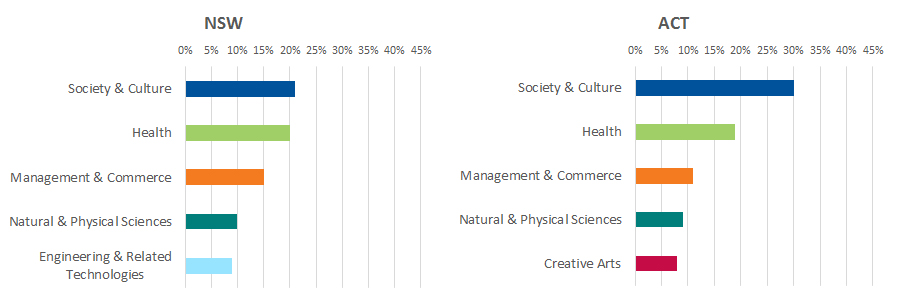
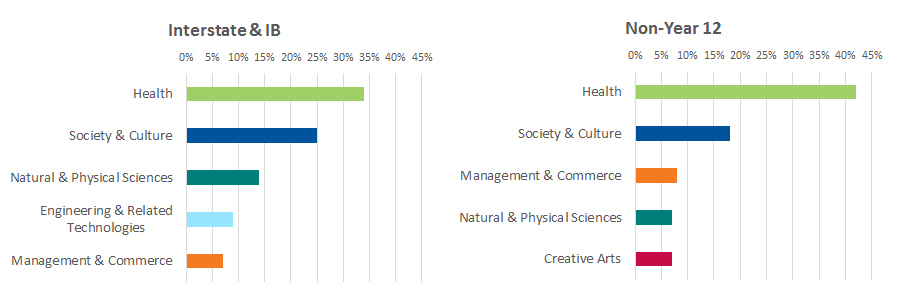
First preference by field of study and gender
While both females and males had most first preference courses in Health, the spread of first preference courses across fields of study was more even for males than for females.
Over half of female applicants listed their first preference course in either Health (32%) or Society & Culture (24%). In contrast, popular fields of study for males included Health (19%), Management & Commerce (16%), Society & Culture (16%), and Engineering & Related Technologies (15%).
Compared with males, a smaller proportion of females had first preference courses in Engineering & Related Technologies, Management & Commerce, and Information Technology.
